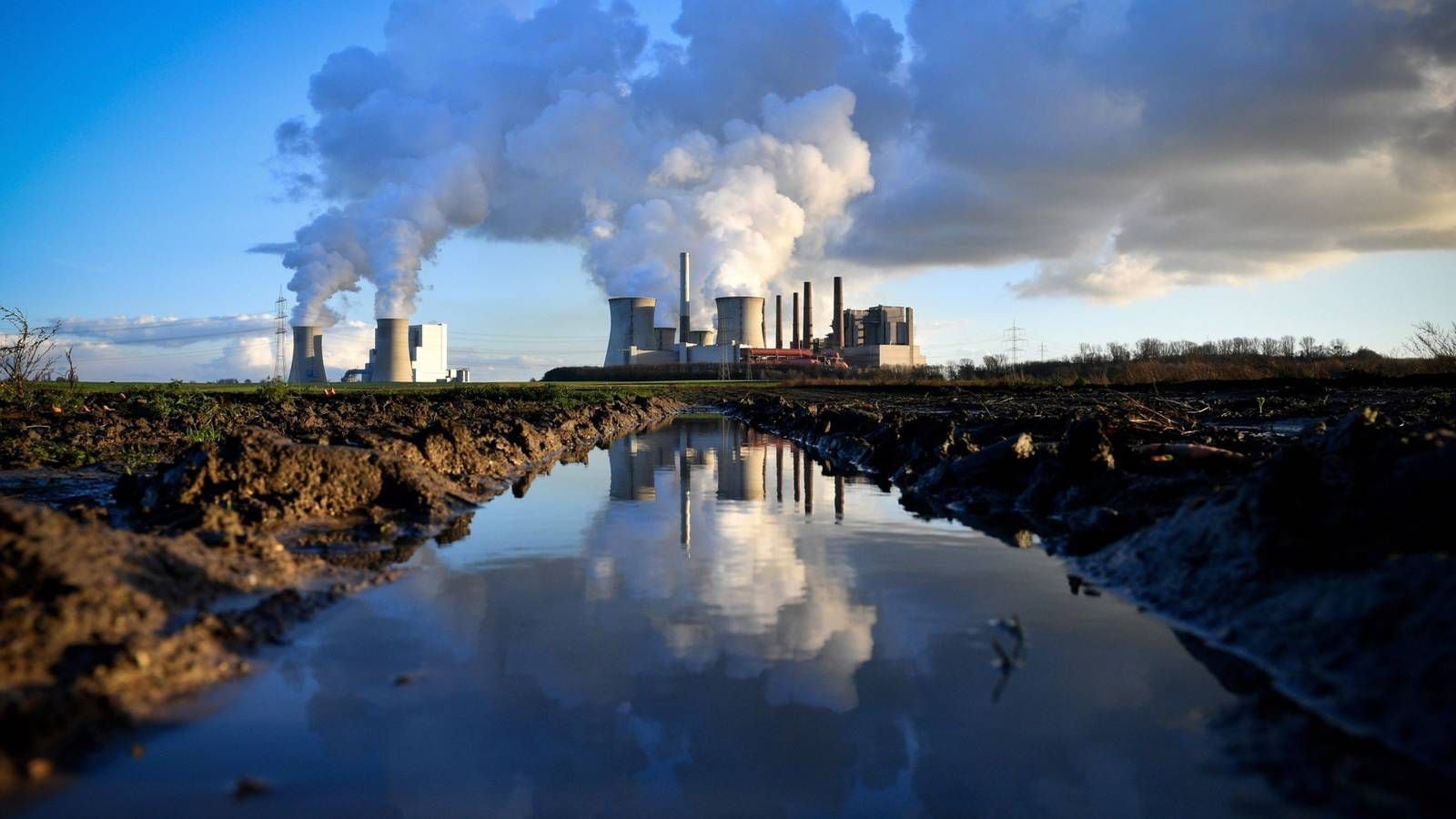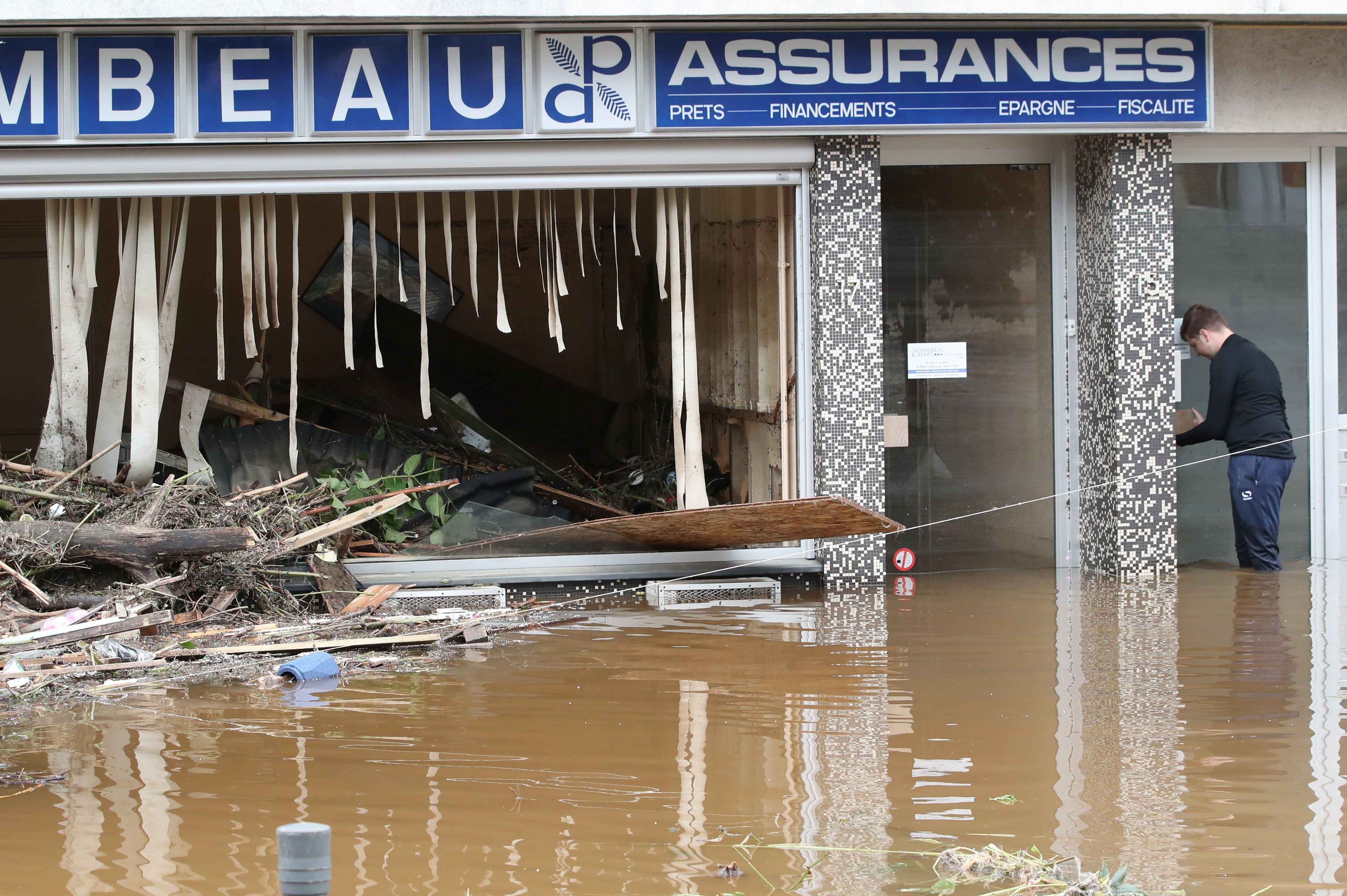
“We are sleepwalking towards the climate catastrophe and we cannot point the finger at each other while the planet burns,” said António Guterres. The words of the Secretary-General of the United Nations are the prelude to the report that will be issued by the Intergovernmental Panel on Climate Change (IPCC) on April 4.
In this document, experts will indicate what commitments countries will have to make to curb global warming and its consequences, which have already led to more than 30 million people around the world having to leave their homes to move to other areas.
The target had already been drawn, by 2030 the planet's temperature could not rise by more than 1.5º Celsius. That is why there is strong pressure to change the global energy matrix and to abandon fossil fuels in favor of renewable energy. “Countries could be so consumed by the immediate insufficiency of the supply of fossil fuels that they may neglect or neglect policies to reduce the use of fossil fuels,” Guterres warned during the Economic Sustainability Summit organized by The Economist magazine.

“The addiction to fossil fuels ensures mutual destruction,” warned the UN headline. While noting that “instead of stepping on the brakes on the decarbonization of the global economy, now is the time to step on the accelerator deep into a renewable energy future.” “This is how we can rescue the 1.5ºC target from the intensive care unit to the recovery room,” Guterres noted, noting that achieving this goal “requires a 45% reduction in global emissions by 2030 and carbon neutrality by the middle of the century.”
The points that the UN incumbent focuses on were agreed during the COP26 Climate Change Summit, held at the end of 2021 in Glasgow, Scotland. According to the experts, despite the above, there was no real commitment on the part of the participating countries. “We are sleepwalking towards the climate catastrophe. Our planet has already warmed up to 1.2 degrees and we see the devastating consequences of this everywhere,” Guterres said.
The report issued two weeks ago by the IPCC noted that half of the world's population lives in areas classified as being at risk from climate disasters. Even due to these same phenomena, they estimate that nearly 30 million people were displaced. For this reason, the head of the UN sought to point out the importance of all nations, regardless of whether they are emerging or developed, comply with the agreed limit: “We cannot point our fingers at each other while the planet is burning.”

The climate at a “turning point”
On April 4, the United Nations Intergovernmental Panel on Climate Change (IPCC) will publish the report where they will chart a series of keys to mitigating global warming. It is that the target of 1.5 °C is getting closer and closer, as is the deadline: 2030. Not only will experts be present for the delivery of this document, but also world leaders will have to join, who will have to sign and approve it.
The first two reports detailed the causes that led the world to this reality, where natural phenomena are increasingly extreme. With this scenario, it is nature itself that presents itself as one of the greatest threats that humanity and all species on the planet will have to face.
In the first document released last August, experts warned that climate is at a turning point. Already with the 1.5°C increase, they ensured that there will be more heat waves, the warm seasons will be longer while the cold ones will be reduced. When the planet reaches a 2°C increase in temperature, heat waves will more often reach the limits of tolerance for both humanity and agriculture.

On the other hand, in the second part of the report, released last month, experts said that if global warming is not limited to just a few tenths above 1ºC, the world will not only suffer from heat waves, but that more fires, floods and droughts will also be added. Moreover, they pointed out that the planet will degrade in 127 different ways over the next few decades and that some will be “potentially irreversible.”
They also stressed that the last 4 were the hottest years on record, since pre-industrialization. In this regard, experts warned of a “bleak future” for humanity and all ecosystems, since almost half of the world's population is “highly vulnerable” to this situation
“The accumulated scientific evidence is unequivocal: climate change is a threat to human well-being and planetary health,” warned the 270 scientists from 67 countries who evaluated the evolution of global warming for the UN. As they pointed out, “some losses are already irreversible”, in the case of the first species extinctions, while others “approach irreversibility”, such as the retreat of glaciers and the loss of permafrost (permanently frozen soils in the arctic regions).

“The global hotspots of high human vulnerability are particularly found in West, Central and Eastern Africa, South Asia, Central and South America, Small Island Developing States and the Arctic,” the experts enumerated and warned that “between 2010 and 2020, floods, droughts and storms was 15 times higher in highly vulnerable regions compared to regions with very low vulnerability”.
Can global warming be stopped?
The latest report, which will be released on April 4, will provide guidelines on how global warming can be halted or mitigated. Since, according to IPCC experts, if countries respect current commitments, the temperature of the planet will rise by 2.7ºC and will be “catastrophic”. Already with a 1.5°C increase, between 3% and 14% of the terrestrial species analyzed will be at very high risk of extinction. When it reaches 3ºC, that risk doubles and at 5ºC it triples.
They also warned that global warming will shorten the availability of fresh water, since at 4ºC normal loss will accelerate and multiply by two. “In southern Europe, more than a third of the population will be exposed to water scarcity if it reaches 2 degrees,” they warned the IPCC, noting that as the temperature rises there will be more “significant economic losses in water and energy dependent sectors.”
In contrast, flood damage will increase, which will almost quadruple if the planet's temperature rises by 3ºC.

Faced with this bleak future, experts will lead the way for countries to accelerate climate change mitigation actions. As it transpired, it will be divided into sectors, such as agriculture, energy and transport, for example. It is even estimated that they will make technological contributions so that nations can apply tools to capture and store carbon.
Early warning: a life-saving response to natural disasters
Some experts believe that this report will emphasize the implementation of a global early warning system for natural disasters, such as heat waves and droughts, floods and fires, as well as other climatic factors that can take human lives.
The UN, together with the World Meteorological Organization (WMO), announced the launch of a global network of early warnings for extreme weather events, which should bear its first fruits in about five years, since currently one third of the world's population does not have these systems and the goal is that 100 per cent of humanity is protected. In addition, within this strategy, a sort of guide will be added to the implementation of response plans to minimize impacts.
..
Últimas Noticias
Debanhi Escobar: they secured the motel where she was found lifeless in a cistern
Members of the Specialized Prosecutor's Office in Nuevo León secured the Nueva Castilla Motel as part of the investigations into the case

The oldest person in the world died at the age of 119
Kane Tanaka lived in Japan. She was born six months earlier than George Orwell, the same year that the Wright brothers first flew, and Marie Curie became the first woman to win a Nobel Prize

Macabre find in CDMX: they left a body bagged and tied in a taxi
The body was left in the back seats of the car. It was covered with black bags and tied with industrial tape
The eagles of America will face Manchester City in a duel of legends. Here are the details
The top Mexican football champion will play a match with Pep Guardiola's squad in the Lone Star Cup

Why is it good to bring dogs out to know the world when they are puppies
A so-called protection against the spread of diseases threatens the integral development of dogs




